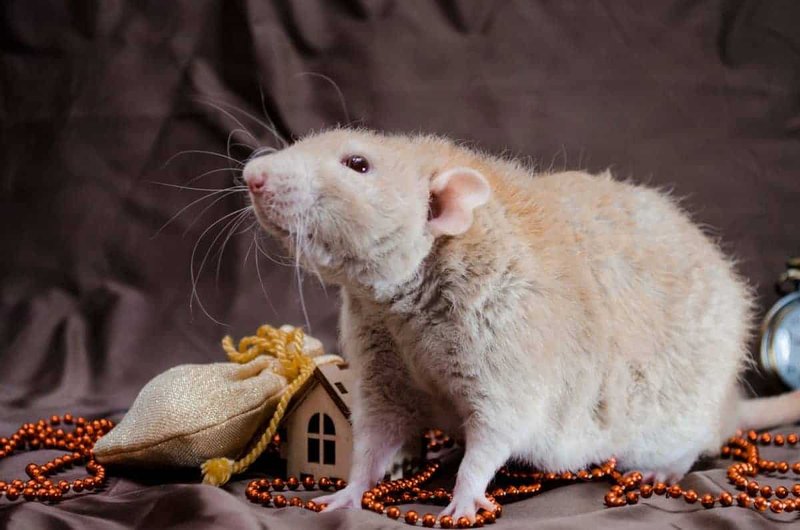
Imagine having a tiny companion that’s not only adorable but also surprisingly social. Rex rats can be playful and fun, but they do require care and attention. In this article, we’ll dive deep into what it’s like to have a Rex rat at home. We’ll explore everything from their care requirements to their personalities, helping you decide if these charming critters are the right choice for you.
What Makes Rex Rats Unique?
First off, let’s talk about looks. The most notable feature of Rex rats is their fur. Instead of the typical silky coat, they have a distinctive curly texture that sets them apart from their smooth-coated relatives. This unique fur comes from a genetic mutation and gives them an adorable, almost plush-like appearance. You might find yourself wanting to pet them more just because their fur is so inviting!
In terms of personality, Rex rats are often described as curious and friendly. They tend to be quite social animals, which makes them great pets for families or anyone looking for a companion. Unlike some other small animals that might shy away from interaction, Rex rats often seek out human company. You might find them climbing up your arm or eagerly sniffing your hand, showing off their desire to bond.
However, it’s important to note that like all pets, their individual personalities can vary. Some may be more cuddly than others, and some may take a little time to warm up. So, patience is key when building a relationship with your Rex rat!
Pros of Owning a Rex Rat
Now, let’s get into the pros of having a Rex rat as a pet. One of the biggest pluses is their friendly disposition. Rex rats typically enjoy socializing with their humans and other rats. They can become very attached and might even learn to respond to their names. This level of interaction can be incredibly fulfilling, especially for those who enjoy a companion that shows affection.
Another benefit is their relatively low maintenance. Unlike dogs or cats that require regular walks and grooming, Rex rats are content with a spacious cage, fresh food, and some toys. Their care focuses more on keeping their environment clean than extensive grooming. Just a little daily attention and some playtime can lead to a happy, healthy Rex rat.
Lastly, Rex rats are often quite entertaining. They are playful and curious, meaning you’re likely to witness their antics daily. From climbing, jumping, and exploring, they can be quite the entertainers! Watching them play can be a delightful way to unwind after a long day.
Cons of Owning a Rex Rat
While Rex rats have many appealing qualities, there are also some challenges to consider. One major drawback is their short lifespan. On average, Rex rats live about 2 to 3 years, which can be heartbreaking for pet owners. This relatively brief time means you might find yourself saying goodbye much sooner than you’d like.
Another con is the potential for health issues. Like any breed, Rex rats can be prone to certain genetic conditions. They may experience respiratory issues or skin problems due to their unique fur. Regular vet check-ups and proper care are essential to keep them healthy, which can be an added responsibility and cost for owners.
Lastly, Rex rats can be quite sensitive to temperature changes. If you live in a climate that swings between extremes, you’ll need to ensure their living environment is consistently comfortable. This might mean investing in additional heating or cooling systems for their habitat. It’s something to keep in mind when considering whether they can handle your local weather!
Understanding Their Care Requirements
Caring for Rex rats is fairly straightforward, but there are specific needs you’ll have to meet. First, they require a spacious cage with plenty of room to explore and play. Look for cages with multi-level setups, as these allow climbing and exploring. A good rule of thumb is to provide at least two cubic feet of space per rat.
Their diet is another essential aspect of care. A high-quality pelleted rat food provides a solid foundation, but you can also supplement their diet with fresh fruits, vegetables, and occasional treats like nuts. Just be sure to avoid foods that are toxic to rats, such as chocolate or certain types of seeds.
Lastly, socialization is crucial. Rex rats thrive on interaction, so spending time with them daily is essential. Activities like gentle handling, playtime outside their cage, and even training can help strengthen your bond while keeping them mentally stimulated.
Housing and Environment Setup
Setting up the perfect environment for your Rex rat is vital for their happiness. A large cage as mentioned before should have horizontal bars for climbing. Make sure to line the bottom with bedding that’s safe for them, such as paper-based bedding, which is easy to clean and absorbent.
Within the cage, include hiding spots, tunnels, and climbing toys. This creates an enriching environment that caters to their curious nature. Providing a wheel can also encourage exercise, helping keep them fit and healthy.
Remember, Rex rats are social creatures. If you’re considering having one, think about getting a pair. They’ll keep each other company, especially if you’re away from home often. It’s often recommended to house them in same-sex pairs to avoid breeding issues.
Is a Rex Rat the Right Choice for You?
When deciding if a Rex rat is the right pet for you, think about your lifestyle and pet ownership experience. They require commitment—daily care, regular social interaction, and a clean environment. If you’re someone who can dedicate time to bond with a pet, a Rex rat can be an incredible companion.
Consider any other pets you might have, too. While Rex rats can get along with other small animals, it’s crucial to supervise interactions to ensure everyone is safe. They can be susceptible to stress from larger pets, so think about the dynamics in your household.
Lastly, consider the emotional aspect. With their shorter lifespan, having a Rex rat means you’ll eventually face the loss. If you feel ready for the commitment and can handle the emotional ups and downs, these little creatures can bring joy and companionship into your life.
In the end, deciding if a Rex rat is right for you comes down to your lifestyle, preferences, and willingness to invest time and care. They can be delightful, affectionate pets that offer unique companionship.
While they do have their challenges, the joys of owning a Rex rat often outweigh the downsides. So, if you’re looking for a playful, social buddy that can fill your home with laughter and love, a Rex rat might just be the furry friend you’ve been searching for.

